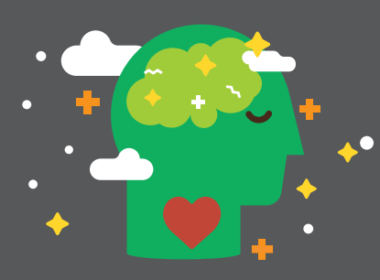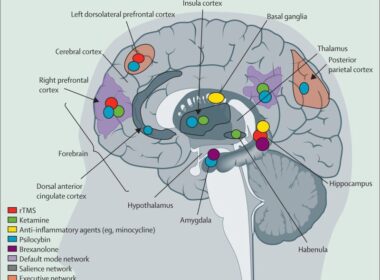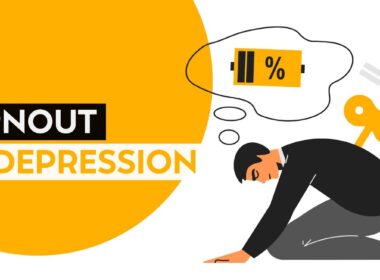Browsing Category
Depression
20 posts
A Ansiedade no Brasil quase triplicou no período de 2018 para 2022, na Saúde Suplementar
TheHealthTransformation.FoundationMentalHealthInstituteDepressionUnit Joaquim Cardoso MSc.29 de Janeiro de 2024 Este é um excerto do relatório abaixo, focado no Sumário…
A crise da saúde mental — A depressão na saúde suplementar passou de 11,1% em 2020 para 13,5% em 2022, aumento de 2,4 pontos percentuais (26%) @ IESS
TheHealthTransformation.FoundationMentalHealthInstituteDepressionUnit Joaquim Cardoso MSc.29 de Janeiro de 2024 Este é um excerto do relatório abaixo, focado no Sumário…
Janeiro Branco na Saúde Suplementar — Depressão & Ansiedade (Sumário Executivo)
TheHealthTransformation.FoundationMentalHealthInstituteDepressionUnit Joaquim Cardoso MSc.29 de Janeiro de 2024 Este é um excerto do relatório abaixo, focado no Sumário…
Therapeutics update: Depression — [healthcare practitioners need to adapt to these changes]
institute for health and tech transformation (ihtt) Joaquim Cardoso MSc. Chief Research Officer (CRO), Chief Editor, Chief Strategy Officer (CSO),…
The teen mental health crisis: a reckoning for Big Tech — [suicide rates among teenagers in the US increased by 45.5% between 2010 and 2020]
the health strategist research and strategy institute — for continuous transformationin value based health, care and tech Joaquim Cardoso MScChief…
Smartphones and social media are destroying children’s mental health
the health strategist institute for continuous transformation in health and tech Joaquim Cardoso MScFounder and Chief Researcher & EditorMarch…
Novel and Emerging Treatments for Major Depression — a review of the past 10 years
The Lancet Prof Steven Marwaha, PhD, Edward Palmer, MBBS, Prof Trisha Suppes, MD PhD, Emily Cons, MSc, Prof…
There is a deepening mental health recession [UK context]
the health transformation . instituteresearch institute & knowledge portal Joaquim Cardoso MSc*Chief Strategy Officer (CSO), Chief Researcher and EditorNovember…
Is It Burnout or Depression? Expanding Efforts to Improve Physician Well-Being
NEJMSrijan Sen, M.D., Ph.D.October 29, 2022 Chief Researcher and Editor of the Site: Joaquim Cardoso MSc.the health transformationresearch institute…
Ensuring care for people with depression — [5% of adults have depression]
The Lancet -EditorialFebruary 15, 2022 Site Editor: Joaquim Cardoso MScHealth Transformation — institute and content portalOctober 11, 2022 At the…











